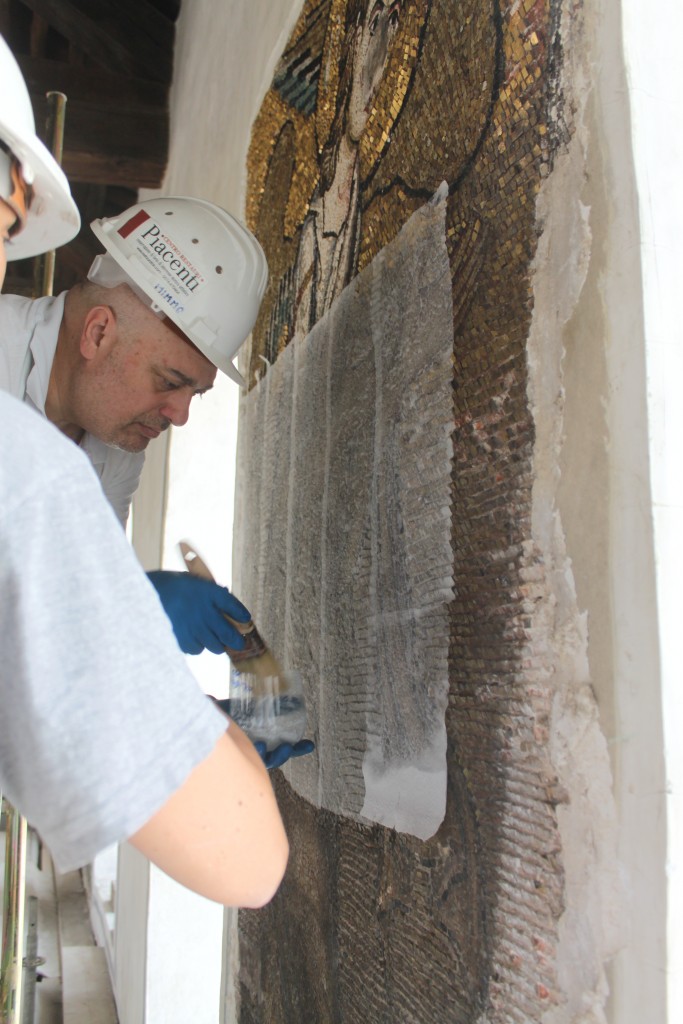Everybody knows that Jesus was born in a simple manger. But even the manger, and what it’s around it (a church built by Emperor Giustiniano in 531 AC on the hills of Bethlehem, in Palestine) was in desperate need of care. Centuries of earthquakes, water leaking from the roof, soot, thousand of candles’ smoke, mold and termites were weakening one of the most visited churches in the world, where 1.5 milion people worship every year.
In 2012 the church was named Unesco Heritage and put among the endangered sites. And Abu Mazen, who has authority over Bethlehem, decided to make a pitch for the restoration of the church.
Twelve companies participated from all over the world. An Italian company won. ‘When it comes to restoration, there is no doubt we are the best in the world’, says Giammarco Piacenti, CEO of a company who started in Florence many years ago and now is one of the most renowned when restoration of cultural sites is concerned. Piacenti moved to Bethlehem two years ago and is working since then with a team of 50 people, only 15 of them from Palestine.
‘We have worked on a project made by a pool of Italian universities (Ferrara, Siena, Rome, Florence, Naples), who won the first pitch. We have then won the other pitch, concerning the proper works’, says Piacenti. ‘The material we brought here are all from Italy, from the scaffolding to the beams, which we have carefully chosen among old wood bought in special markets, and examined using the same techniques used by 16th century carpenters. So far we have shipped 22 containers of material from Italy’.
‘We have now finished the first part, the roof, which was in the worst conditions. When it rains (and luckily in this part of the world it doesn’t rain much) the water leaked and flooded the mosaics. We have four more years of work here, if the funds last’.
Despite the many invasions, the Nativity Church has always been saved by destruction because every population of every possible religion acknowledged its importance for humanity. For Bethlehem the Nativity Church is of paramount importance, bringing tourism and money to a place otherwise poor.
‘We have been very welcomed by the local people’, add Piacenti. ‘But on our part we have been extremely careful not to bring any disruption. The church is always open and we stop working when necessary, when there is a funeral for example. In some occasions we have worked during the night not to disturb with noise the service’.

Piacenti’s company is working at the moment not only in Bethlehem but also at Uffizi in Florence, at Reggia of Caserta and much more. In a few year time the Nativity Church of Jesus will be a little Italian.



